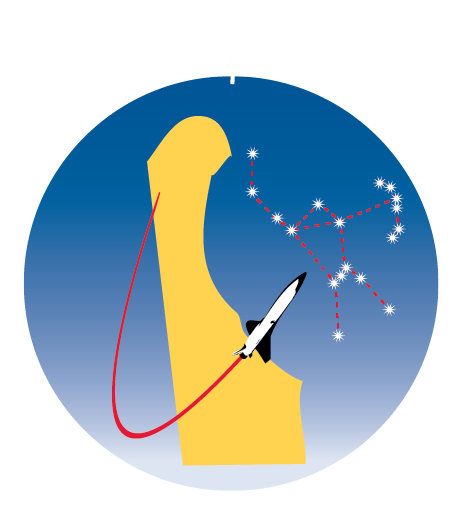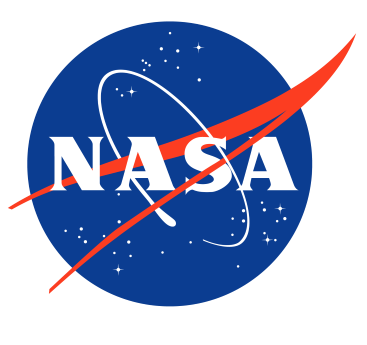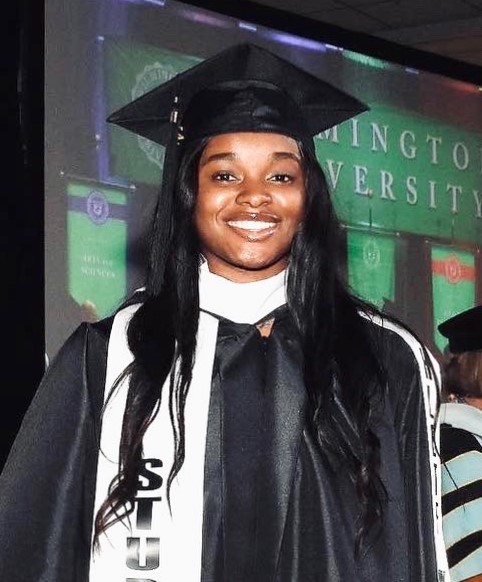
Graduate Fellow
Wilmington University
Environmental science
I play Women’s basketball at Wilmington University. I love science! I received a Bachelor’s in Biology in May 2022 and am currently studying to obtain a master’s degree in Environmental Science. After graduation, I plan on becoming an Epidemiologist. I enjoy making the world a better place, so collecting and analyzing data to investigate health issues and finding more information on diseases is definitely exciting and makes me happy. I am very excited for this NASA program! Learning new things in different areas as a scientist is always exciting.
Amaja’s Research Summary:
My research was about the Coral Reef ecosystem. The Coral Reef ecosystem is being destroyed at a high rate due to the dramatic climate change consequence known as coral bleaching, which is the loss of endosymbiotic algae that is becoming a major threat worldwide, depriving other host animals of a major food and energy source. There has been research that has shown that coral reef systems are being damaged beyond repair and soon may become extinct due to pollution and warming water temperatures associated with climate change.
We used coral species Aiptasia Pallida to develop as a model organism, characterizing our own strain in the Muldrow lab. Current research that included conducting DNA sequencing using Oxford Nanopore Technology along with conducting NAD+ precursors on coral growth and development. Through Aiptasia research, we are competent in conducting the steps of sequencing and analysis. There were three 10-20 gallon saltwater aquarium tanks. One tank for symbiotic and the other for aposymbiotic/asymbiotic. The tanks were labeled Primary tank , Experimental tank, & Control tank. There were a total of 90 Aitpasia spread out, 30 Aiptasia in each tank.
Overall the goal of the research and the experiment was to be able to get a clear and accurate reading of the model organism so Nanopore technology can be used as a measuring tool to evaluate the NAD+ precursor experiment. We were involved in the husbandry of stony coral species Aiptasia Pallida to developas a model organism, characterizing a strain in theWilmington University Laboratory.
The Delaware Space grant experience was amazing. As a young scientist I learned many new things. Due to covid-19 I spent most of my college years doing school work and Laboratory work online. I did not get to do much hands-on work which is very critical for scientists. When starting the Space grant program I had to re-learn how to use lab tools properly, such as pipetting, vortexing, etc. I learned a lot about climate change, and how the Coral Reef Ecosystem is in decline. I also attended my very first symposium and learned a lot of cool things about NASA. The whole experience made me very excited about becoming a scientist.
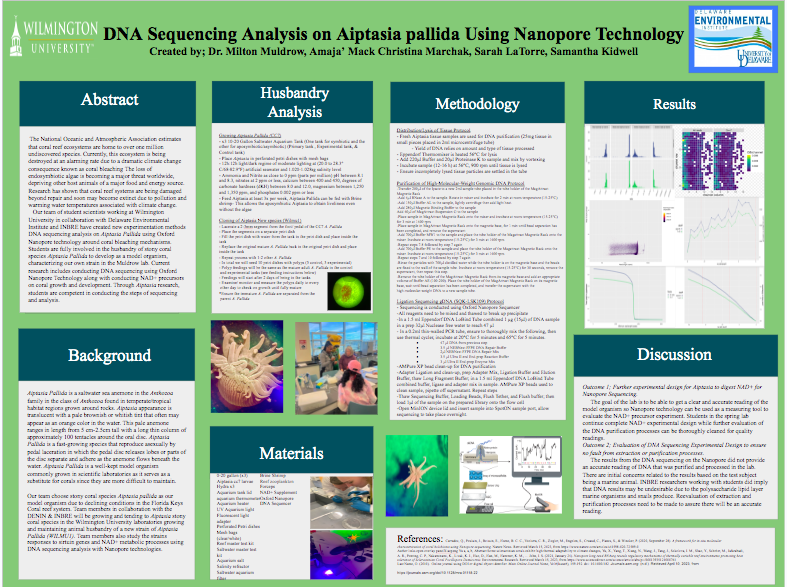
Figure 1:: The image above displays the presentation me, and my fellow classmates created and presented at the Delaware NASA Space Grant Symposium.
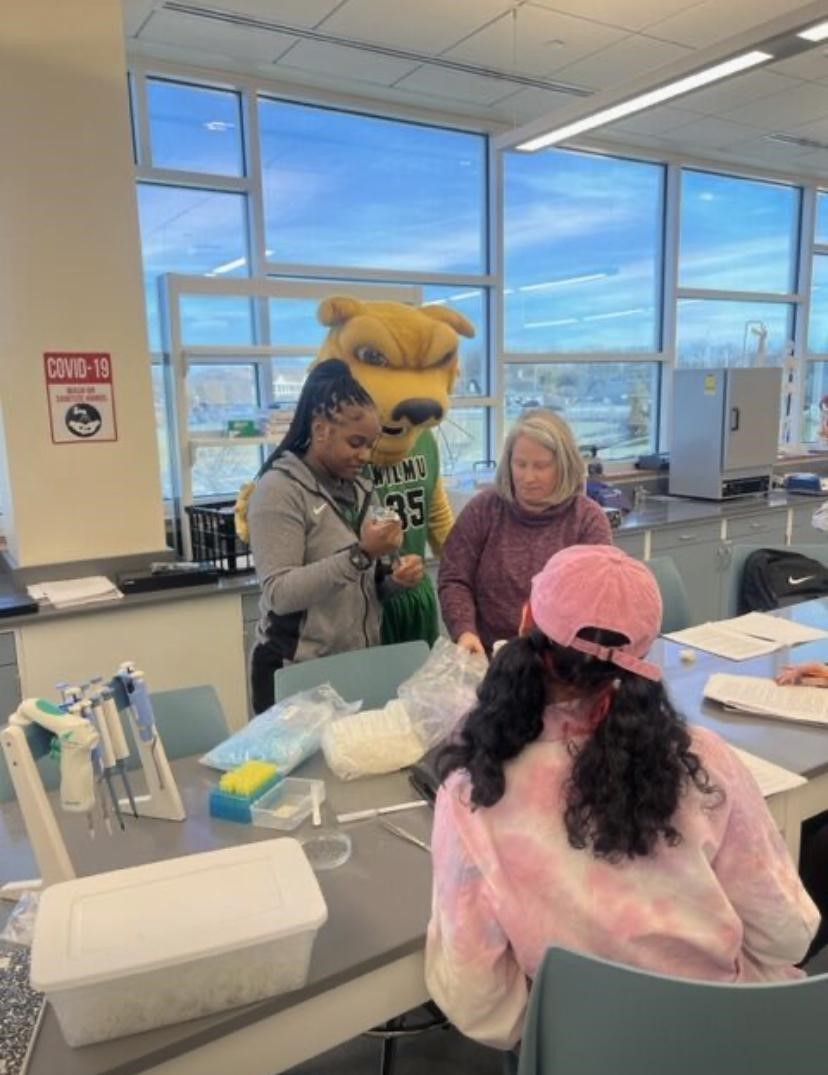
Figure 2: Displays Amaja’ Mack (Me) and Sarah LaTorre adding 280μl Magnetic Binding Buffer to the sample in the DNA Sequencing experiment.
References (Used on the poster)
Carradec, Q., Poulain, J., Boissin, E., Hume, B. C. C., Voolstra, C. R., Ziegler, M., Engelen, S., Cruaud, C., Planes, S., & Wincker, P. (2020, September 28). A framework for in situ molecular characterization of coral holobionts using Nanopore sequencing. Nature News. Retrieved March 15, 2023, from https://www.nature.com/articles/s41598-020-72589-0
Author links open overlay panelXiaopeng Yu a, a, b, Abstract Some scleractinian corals exhibit high thermal adaptability to climate changes, Yu, X., Yang, T., Xiang, N., Wang, J., Tang, J., Sokolova, I. M., Shao, Y., Schröer, M., Jafarabadi, A. R., Ponting, C. P., Nakaminami, K., Livak, K. J., Huo, D., Han, M., Hammer, K. M., … John, I. S. (2021, January 24). Nanopore long-read RNAseq reveals regulatory mechanisms of thermally variable reef environments promoting heat tolerance of Scleractinian Coral Pocillopora Damicornis. Environmental Research. Retrieved March 15, 2023, from https://www.sciencedirect.com/science/article/abs/pii/S0013935121000761
Last Name, O. (2010). Online journal using DOI or digital object identifier. Main Online Journal Name, Vol#(Issue#), 159-192. doi: 10.1000/182 Journals.asm.org. (n.d.). Retrieved April 10, 2023, from https://journals.asm.org/doi/10.1128/mra.01118-22
